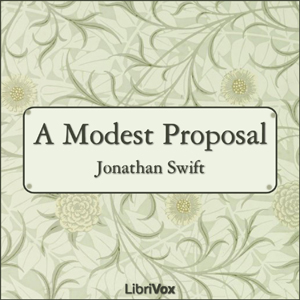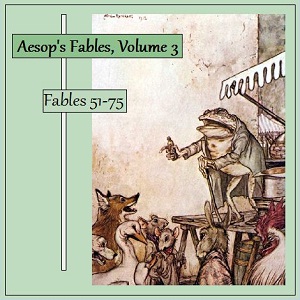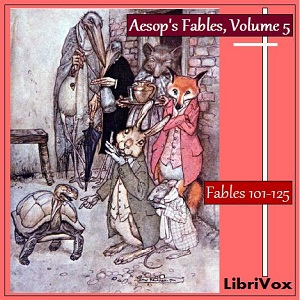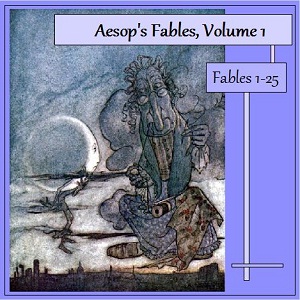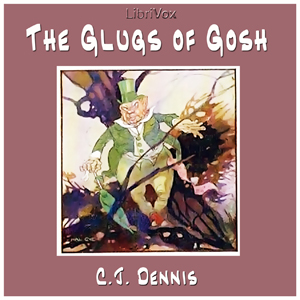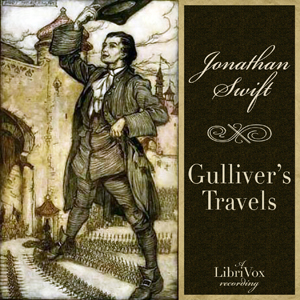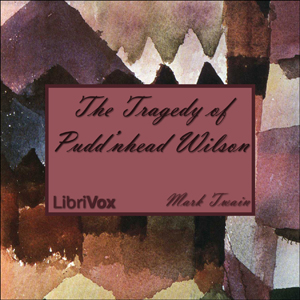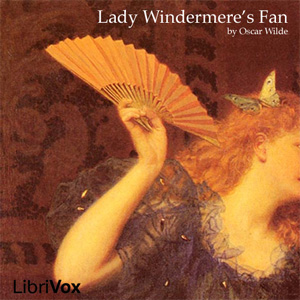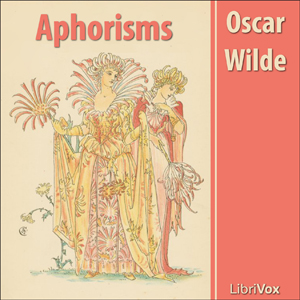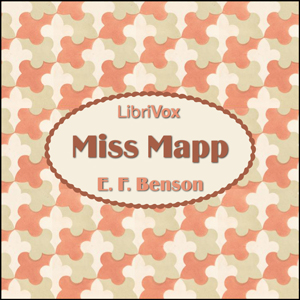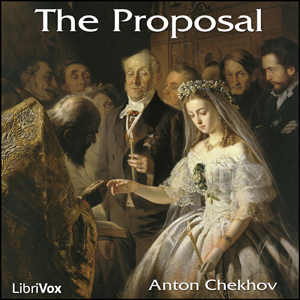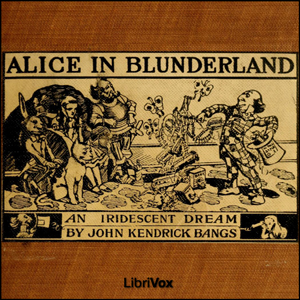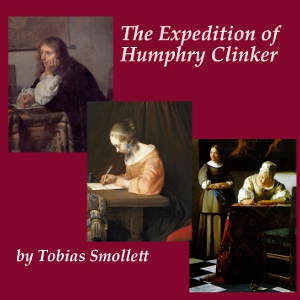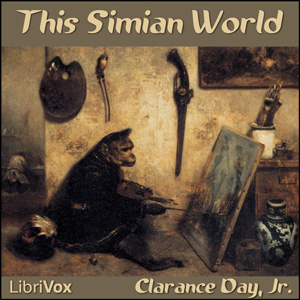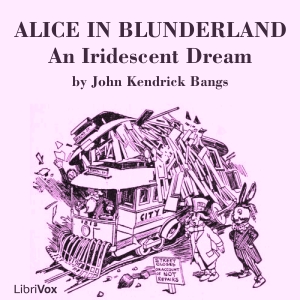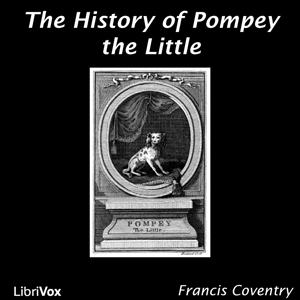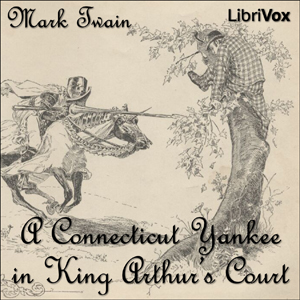
Come and hear the strange tail of The Boss Hank Morgan, a modern day (at the time of publication) Connecticut Yankee who inexplicably finds himself transported to the court of the legendary King Arthur (as the title of the book implies). Hank, or simply, The Boss, as he comes to be most frequently known, quickly uses his modern day knowledge and education to pass himself off as a great magician, to get himself out of all sorts of surprising, (and frequently amusing) situations, as well as to advance the technological and cultural status of the nation in which he finds himself.
In the rather un-subtle sub-text of the story, Twain uses The Boss to express a surprisingly pragmatic and frequently contradictory philosophy. The Boss explores the relative merits of Democracy, and Monarchy, he expresses his views on the “Nature v. Nurture” debate, he frequently speaks forcefully against an established Church, but just as strongly advocates for religion and a variety of churches (just not a compulsory one) and he devotes at least one afternoon to introducing his companions to the concept of inflation. In a far more subtle, yet no less forceful manner, the Boss shares with the reader some views about taxation, slavery (both literal and wage slavery), trade unions, the origins of the German language, the nature of marriage, and probably most powerfully, death.
It is a tall order for a relatively brief text, but Twain manages it all with surprising clarity. No one will agree fully with the Boss on all of these matters, and I would be surprised if Twain himself would. In fact the Boss’s views are so pragmatic, and often contradictory, the reader is left to wonder if Twain himself is alternately speaking through the Boss, and setting him up as a straw man. Either way it is a delightful story and a great piece of American Literature, to say nothing of an excellent argument for education.
(Review written by Steve Andersen)
45 episodes
Jonathan Swift almost defines satire in this biting and brutal pamphlet in which he suggests that poor (Catholic) Irish families should fatten up their children and sell them to the rich (Protestant) land owners, thus solving the twin problems of starving children and poverty in one blow. When the “Proposal” was published in 1729, Swift was quickly attacked, and even accused of barbarity – the exact state the “Proposal” was written to expose. (Summary by Hugh)
1 episodes
Dating back to the 6th century BC, Aesop's Fables tell universal truths through the use of simple allegories that are easily understood. Though almost nothing is known of Aesop himself, and some scholars question whether he existed at all, these stories stand as timeless classics known in almost every culture in the world. This is volume 3 of 12. (Summary by Chip)
25 episodes
Dating back to the 6th century BC, Aesop's Fables tell universal truths through the use of simple allegories that are easily understood. Though almost nothing is known of Aesop himself, and some scholars question whether he existed at all, these stories stand as timeless classics known in almost every culture in the world. This is volume 4 of 12. (Summary by Chip)
25 episodes
Dating back to the 6th century BC, Aesop's Fables tell universal truths through the use of simple allegories that are easily understood. Though almost nothing is known of Aesop himself, and some scholars question whether he existed at all, these stories stand as timeless classics known in almost every culture in the world. This is volume 5 of 12. (Summary by Chip)
25 episodes
Dating back to the 6th century BC, Aesop's Fables tell universal truths through the use of simple allegories that are easily understood. Though almost nothing is known of Aesop himself, and some scholars question whether he existed at all, these stories stand as timeless classics known in almost every culture in the world. This is volume 6 of 12.(Summary by Chip)
25 episodes
Dating back to the 6th century BC, Aesop's Fables tell universal truths through the use of simple allegories that are easily understood. Though almost nothing is known of Aesop himself, and some scholars question whether he existed at all, these stories stand as timeless classics known in almost every culture in the world. This is volume 7 of 12.(Summary by Chip)
25 episodes
Dating back to the 6th century BC, Aesop's Fables tell universal truths through the use of simple allegories that are easily understood. Though almost nothing is known of Aesop himself, and some scholars question whether he existed at all, these stories stand as timeless classics known in almost every culture in the world. This is volume 8 of 12.(Summary by Chip)
24 episodes
Dating back to the 6th century BC, Aesop's Fables tell universal truths through the use of simple allegories that are easily understood. Though almost nothing is known of Aesop himself, and some scholars question whether he existed at all, these stories stand as timeless classics known in almost every culture in the world. This is volume 9 of 12.(Summary by Chip)
25 episodes
Crome Yellow, published in 1921 was Aldous Huxley’s first novel. In it he satirizes the fads and fashions of the time. It is the witty story of a house party at ‘Crome’ where there is a gathering of bright young things. We hear some of the history of the house from Henry Wimbush, its owner and self appointed historian; Apocylapse is prophesied, virginity is lost, and inspirational aphorisms are gained in a trance. Our hero, Denis, tries to capture it all in poetry and is disappointed in love.
The author, Aldous Huxley, was born in 1894 and began writing poetry and short stories in his early twenties; this was his first novel and established his literary reputation. (Summary by Martin Clifton)
30 episodes
Northanger Abbey is a hilarious parody of 18th century gothic novels. The heroine, 17-year old Catherine, has been reading far too many “horrid” gothic novels and would love to encounter some gothic-style terror — but the superficial world of Bath proves hazardous enough. (Summary by Kara)
31 episodes
Dating back to the 6th century BC, Aesop's Fables tell universal truths through the use of simple allegories that are easily understood. Though almost nothing is known of Aesop himself, and some scholars question whether he existed at all, these stories stand as timeless classics known in almost every culture in the world. This is volume 1 of 12. (Summary by Chip)
26 episodes
Dating back to the 6th century BC, Aesop's Fables tell universal truths through the use of simple allegories that are easily understood. Though almost nothing is known of Aesop himself, and some scholars question whether he existed at all, these stories stand as timeless classics known in almost every culture in the world. This is volume 10 of 12.
(Summary by Chip)
25 episodes
Dating back to the 6th century BC, Aesop's Fables tell universal truths through the use of simple allegories that are easily understood. Though almost nothing is known of Aesop himself, and some scholars question whether he existed at all, these stories stand as timeless classics known in almost every culture in the world. This is volume 11 of 12.
(Summary by Chip)
25 episodes
Dating back to the 6th century BC, Aesop's Fables tell universal truths through the use of simple allegories that are easily understood. Though almost nothing is known of Aesop himself, and some scholars question whether he existed at all, these stories stand as timeless classics known in almost every culture in the world. This is volume 12 of 12.
(Summary by Chip)
9 episodes
Dating back to the 6th century BC, Aesop's Fables tell universal truths through the use of simple allegories that are easily understood. Though almost nothing is known of Aesop himself, and some scholars question whether he existed at all, these stories stand as timeless classics known in almost every culture in the world. This is volume 2 of 12. (Summary by ChipDoc)
25 episodes
Mansfield Park features Austen’s frailest and perhaps most scrupulous heroine, Fannie Price. As the eldest daughter in a poor family, Fannie is sent to rich relatives when she’s just old enough to fully appreciate the shame of her circumstances. Without pride or prejudice, Fanny sticks to principles in all matters. And matters certainly put her to the test. (Summary by Anita)
48 episodes
Vanity Fair: A Novel without a Hero is a novel by William Makepeace Thackeray that satirizes society in early 19th-century England. Like many novels of the time, Vanity Fair was published as a serial before being sold in book form; it was printed in 20 monthly parts between January 1847 and July 1848.Thackeray meant the book to be not only entertaining but also instructive; this is shown both by the narrator of the book and in Thackeray's private correspondence. The novel is now remembered as a classic of English literature, though some critics claim that it has structural problems; Thackeray sometimes lost track of the huge scope of his work, mixing up characters' names and minor plot details. The number of allusions and references it contains can make it difficult for modern readers to follow.
67 episodes
First published in 1917, The Glugs of Gosh satirizes Australian life at the start of the twentieth century - but the absurdities it catalogs seem just as prevalent at the start of the twenty-first. The foolishness of kings, the arrogance of the elite, the gullibility of crowds, the pride of the self-righteous, the unthinking following of tradition - all find themselves the targets of C. J. Dennis' biting wit. (Summary by Chris Goringe).
6 episodes
Ambrose Bierce (1842 - 1914?), satirist, critic, poet, short story writer and journalist. His fiction showed a clean economical style often sprinkled with subtle cynical comments on human behaviour. In the Devil's Dictionary, he let his sense of humour and his cynical outlook on life colour a collection of dictionary-like definitions. (Summary by Peter)
17 episodes
Fenimore Cooper - author of The Deerslayer, The Last of the Mohicans, etc - has often been praised, but just as often been criticised for his writing. Mark Twain wrote a funny, vicious little essay on the subject, in which he states: "In one place in 'Deerslayer,' and in the restricted space of two-thirds of a page, Cooper has scored 114 offences against literary art out of a possible 115."
(Summary by Gesine)
1 episodes
Gulliver's Travels (1726, amended 1735), officially Travels into Several Remote Nations of the World, is a novel by Jonathan Swift that is both a satire on human nature and a parody of the "travelers' tales" literary sub-genre. It is widely considered Swift's magnum opus and is his most celebrated work, as well as one of the indisputable classics of English literature. (Summary from Wikipedia)
40 episodes
Hard Times, the shortest of Dickens's full-length novels, is set in the fictitious Victorian-England city of Coketown, where facts are the rule and all fancy is to be stamped out. The plot centers around the men and women of the town, some of whom are beaten down by the city's utilitarian ideals and some of whom manage to rise above it. The novel was written in 1854 and was a scathing attack on then-current ideas of utilitarianism, which Dickens viewed as a selfish and at times oppressive philosophy. Perhaps the novel's best features are its clever, ironic narration and the larger-than-life characters that push the plot forward, such as the upper-class banker and hypocritical braggart, Josiah Bounderby, and the fact-driven schoolmaster, Thomas Gradgrind. (Summary by Rosalind Wills).
22 episodes
The Posthumous Papers of the Pickwick Club, better known as The Pickwick Papers, is the first novel by Charles Dickens. Written for publication as a serial, The Pickwick Papers consists of a sequence of loosely-related adventures. Its main literary value and appeal is formed by its numerous unforgettable heroes. Each personage in The Pickwick Papers (just as in many other Dickens' novels) is drawn comically, often with exaggerated features of character. (Wikipedia)
57 episodes
Old Martin Chuzzlewit has heaps of money that has never brought him anything but misery. Estranged from his grandson and namesake, when word gets out that he is ill, he finds himself surrounded by a throng of relatives that he despises, all hoping to get a piece of the pie. He allows himself to be taken under the wing of his obsequious and hypocritical cousin, Seth Pecksniff, who is more than happy to shelter him and kowtow to him and to keep all other relatives away. Will this vulture be the one to inherit the old man’s fortune, or is there more going on than meets the eye?Treachery, mayhem, and possibly murder, along with some genuine love and compassion are skillfully intertwined in this book, along with Dickens’ classic wit and brilliantly created characters. His villains are odious, his good guys are delightful, and those that fall in between truly deserve to be called “Characters.” (summary by Debra Lynn)
76 episodes
In one of his later novels, the master storyteller spins a tale of two children switched at infancy. A slave takes on the identity of master and heir while the rightful heir is condemned to live the life of a slave. Twain uses this vehicle to explore themes of nature vs. nurture, racial bigotry and moral relativism. The case of mistaken identity is a theme that Twain explored also in THE PRINCE AND THE PAUPER; in THE TRAGEDY OF PUDD'NHEAD WILSON he turns the theme into a well-crafted detective story. It is unfortunate that this is one of Twain's lesser known works as it is one of his most enjoyable reads.
23 episodes
It's a cold and foggy night in London. A man is horribly murdered in his bedroom, the door locked and bolted on the inside. Scotland Yard is stumped. Yet the seemingly unsolvable case has, as Inspector Grodman says, "one sublimely simple solution" that is revealed in a final chapter full of revelations and a shocking denouement. Detective fiction afficionados will be happy to learn that all the evidence to solve the case is provided. One of the earliest “locked room” mystery stories, The Big Bow Mystery is also a satire of late Victorian society. (Summary by Adrian Praetzellis)
12 episodes
Do remember reading a panic-mongering news story a while back about genetically engineered “Frankengrass” “escaping” from the golf course where it had been planted? That news story was foreshadowed decades previously in the form of prophetic fiction wherein a pushy salesman, a cash-strapped scientist, and a clump of crabgrass accidentally merge forces with apocalyptic consequences. A triple-genre combo of science fiction, horror, and satire, Greener Than You Think is a forgotten classic that resonates beautifully with modern times. This is a faithful reading of a 1947 first edition text. (Summary by Lee Elliot)
45 episodes
Lady Windermere's Fan: A Play About a Good Woman is a four act comedy by Oscar Wilde, published in 1893. As in some of his other comedies, Wilde satirizes the morals of Victorian society, and attitudes between the sexes.The action centres around a fan given to Lady Windermere as a present by her husband, and the ball held that evening to celebrate her 21st birthday. (Summary by Ruth Golding)
Cast:
Lady Windermere - Kristin Hughes
Lord Windermere - Joe Earley
Mrs. Erlynne - Elizabeth Klett
Lord Darlington - Simon Taylor
The Duchess of Berwick - Ruth Golding
Mr. Cecil Graham - Chugosh
Lord Augustus Lorton - Chrystian J. Gonzalez
Mr. Dumby - Geoff Cowgill
Parker - Ed Meade
Lady Agatha Carlisle - Ezwa
Lady Plymdale - Christie Nowak
Mr. Hopper - tubeyes
Lady Jedburgh - Kalynda
Rosalie - Duan
Lady Stutfield - Sara Korsmo
Mrs. Cowper-Cowper - Anna Roberts
Narrator - Annoying Twit
Audio edited by Rosalind Wills and Ruth Golding.
4 episodes
In 1894, Oscar Wilde (1854 - 1900) published two collections of aphorisms: A Few Maxims For The Instruction Of The Over-Educated, in the Saturday Review newspaper, and Phrases and Philosophies for the Use of the Young, in the Oxford student magazine The Chameleon. By turns witty, intellectual, counter-intuitive and obtruse, the collections came to be seen by many as emblematic of Wilde's style, and countless collections of Wildean aphorisms have since been published. (Summary by Carl Manchester)
2 episodes
Born in the Marshalsea Prison for Debtors, Amy—Little Dorrit—the daughter of the ruined, but self-respectful William Dorrit, has put her entire heart in caring for her dear father, until one day her humble path is crossed by Arthur Clennam. Their meeting proves providential not only for Amy's life, but for the whole Dorrit family, whose new rise will, in many ways, be also their fall. As in all his novels, in Little Dorrit Dickens ushers us into a fascinating and startlingly rich world of human characters and destinies, where virtue and nobility cross swords with vice and villainy, where strength and weakness intertwine with prejudice and magnanimity and where the author's inspired pen wields a compelling and unforgettable power over the readers. (Summary by Ellis Christoff)
72 episodes
The Voyage Out is the first novel by Virginia Woolf, published in 1915 by Duckworth; and published in the U.S. in 1920 by Doran. One of Woolf's wittiest social satires.Rachel Vinrace embarks for South America on her father's ship and is launched on a course of self-discovery in a kind of modern mythical voyage. The mismatched jumble of passengers provide Woolf with an opportunity to satirize Edwardian life. The novel introduces Clarissa Dalloway, the central character of Woolf's later novel, Mrs. Dalloway.E. M. Forster described it as "... a strange, tragic, inspired book whose scene is a South America not found on any map and reached by a boat which would not float on any sea, an America whose spiritual boundaries touch Xanadu and Atlantis... It is absolutely unafraid... Here at last is a book which attains unity as surely as Wuthering Heights, though by a different path." (Introduction from Wikipedia)
33 episodes
E. F. Benson's Mapp and Lucia series, consists of six novels and three short stories. The novels are: Queen Lucia, Lucia in London, Miss Mapp (including the short story The Male Impersonator), Mapp and Lucia, Lucia's Progress (published as The Worshipful Lucia in the U.S.) and Trouble for Lucia.
The novels feature humorous incidents in the lives of (mainly) upper-middle-class British people in the 1920s and 1930s, vying for social prestige and "one-upmanship" in an atmosphere of extreme cultural snobbery. Most of these works are set in the fictional village of "Tilling", which is based on the village of Rye, Sussex, England. "Mallards", the house with the garden room inhabited by Miss Mapp, and later by Lucia, is based on Lamb House, Benson's own home in Rye. Earlier, the house was the Sussex home of writer Henry James. (Summary adapted from Wikipedia by Karen Merline.)
24 episodes
The Proposal is a one act comic farce by Anton Chekhov. In Chekhov's Russia, marriage was a means of economic stability for most people. They married to gain wealth and possessions. In this play, the concept of marriage is being satirized to show the real purpose of marriage - materialistic gain rather than true love. (Summary with reference to Wikipedia)Cast:Stepan Stepanovich Chubukov - read by John EddingsNatalya Stepanovna - read by Ruth GoldingIvan Vassilevitch Lomov - read by Simon LaroisStage directions - read by PhilippaAudio edited by Ruth Golding
1 episodes
Flatland: A Romance of Many Dimensions is an 1884 science fiction novella by the English schoolmaster Edwin Abbott Abbott. As a satire, Flatland offered pointed observations on the social hierarchy of Victorian culture. However, the novella's more enduring contribution is its examination of dimensions; in a foreword to one of the many publications of the novella, noted science writer Isaac Asimov described Flatland as "The best introduction one can find into the manner of perceiving dimensions." As such, the novella is still popular amongst mathematics, physics and computer science students. (Summary by Wikipedia)
9 episodes
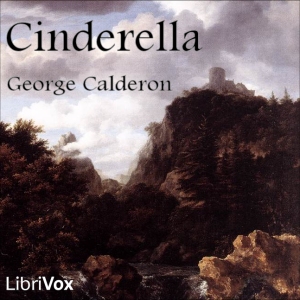
If you are expecting glass slippers and pumpkin coaches, look elsewhere... This is "a pantomime as Ibsen would have written it, if only it had occurred to him to write one." Set on a "bleak and cheerless heath overlooking the fjord" we meet Ibsenesque heroine Mrs. Inquest, her step-daughter Hilda, and her daughter Hedda, who is engaged to be married to the unfortunate Tesman. Thus begins Calderon's hilarious Ibsenesque version of Cinderella. NOTE from the editor of the volume, published in 1922 after Calderon's death: This play is hardly more than a rough draft, written when the idea was fresh and put aside to be worked on when the right moment should come. Unhappily it never came; but even in its present form the play has seemed too characteristic of its author to be lost, and it is therefore printed as it stands.
Devotees of Ibsen will recognise many names and references, but may not appreciate Calderon's irreverent parody of the master's work. People who know but do not like Ibsen may well find it very funny. (Summary by Ruth Golding)
Cast list
Mrs. Inquest: Ruth GoldingHedda, her daughter, a distinguished fashionable person: TriciaGHilda, her stepdaughter: Helen TaylorMadam Helseth, her servant: Xe SandsAunt Judy, her sister: Maria KasperMopsyman, Aunt Judy's dog: Clara SnyderStockfish: mbTesman, his son (Acts I and II): David BarnesTesman (Act III): Ian KingA Demon: icyjumboA Fairy: Lucy PerryA Hired Waiter: EzwaAn Italian Waiter: Laurie Anne WaldenA German Waiter: Robert SteinerA Chamberlain: Zames Curran
Stage directions and sound effects: David LawrenceAudio edited by Ruth Golding
4 episodes
From Alice in Blunderland:
"Certain of our members claim that they have a right to sell their votes for $500 apiece--"
"Mercy!" cried Alice, "Why, that is--that is terrible."
"It certainly is," said the March Hare ruefully, it's rotten. Here I've been holding out for $1,250 for mine, and these duffers want to go in for a cut rate that will absolutely ruin the business."
John Kendrick Bangs takes Carroll's Alice in Wonderland and turns it into a political satire in many ways as fresh, keen and relevant today as it was a hundred years ago. (Summary by Ruth Golding)
7 episodes
Eine Geschichte über menschliche Schwächen und welch schweres Leben diejenigen wenigen Personen erdulden, die davon frei sind. 1774-1780 erschienen, zeitlos gültig. (Summary by redaer)
58 episodes
The Expedition of Humphry Clinker was the last of the picaresque novels of Tobias Smollett, and is considered by many to be his best and funniest work.
Published in London on 17 June 1771, it is an epistolary novel, presented in the form of letters written by six different characters: Matthew Bramble, a Welsh Squire; his sister Tabitha; their niece and nephew, Jery and Lydia Melford; Tabitha's maid Winifred Jenkins; and Lydia's suitor, Wilson.
Much of the comedy arises from differences in the descriptions of the same events by different participants. Attributions of motives and descriptions of behavior show wild variation and reveal much about the character of the teller. The setting, amidst the high-society spa towns and seaside resorts of the 18th century provides his characters with many opportunities for satirical observations on English life and manners. (Summary by Wikipedia)
85 episodes
Clarence Day, Jr., best known for his work Life with Father, presents a satirical speculation on how the world might be different if we apes had not risen to prominence, but rather one of the other species had become dominant in our place. (summary by Epistomolus)
7 episodes
L'Ingénu is a satirical novella by the French writer Voltaire, published in 1767. It tells the story of a Huron Indian transported to the sophistication of eighteenth century Paris, and satirizes religious doctrine, as well as the folly and injustices of French society. (Summary from Wikipedia).
5 episodes
LibriVox volunteers bring you 17 recordings of Business by Ambrose Bierce. This was the weekly poetry project for August 2nd, 2009.
17 episodes

Deep in the fens of the British coast sits the gloomy mansion that goes by the name Nightmare Abbey. It is inhabited by persons of very low opinion of the human race, and in fact they pride themselves in the depths of their detestation. Others of its denizens believe the ultimate exercise and product of the human mind ought to be chaos.
Now let the young master of the house get snared by the wiles of a beautiful young lady. And for good measure, toss in another beautiful young lady. Now Scythrop (named in honor of an ancestor who became bored with life and hanged himself) is about to find that two such make too much of a good thing!
Peacock wrote Nightmare Abbey as a satire, and he has folded in allusions to or quotations from literally dozens of other works. He makes use of many long, impressive-sounding words (some of which he very possibly made up!). Ignore these and his occasional Latin phrase, treat the rest as a farce, and you're on track for a fun listen!(Summary be Mark F. Smith)
15 episodes
John Kendrick Bangs was an American author and satirist, and the creator of modern Bangasian Fantasy, the school of fantasy writing that sets the plot wholly or partially in the afterlife. (Wikipedia)
Plot summary: J K Bangs has taken Alice from Lewis Carroll's “Alice in Wonderland” and lets her on a boring day travel with the Mad Hatter, the March Hare, the Cheshire Cat and the other of Carroll's familiar characters to Blunderland. The story is a well written Satire, a witty, humorous tale of adventure and city politics, a tale of Alice in a land where nothing is as it should be. (Summary by Lars Rolander)
7 episodes
"Pompey, the son of Julio and Phyllis, was born A.D. 1735, at Bologna in Italy, a place famous for lap-dogs and sausages." At an early age he was carried away from the boudoir of his Italian mistress by Hillario, an English gentleman illustrious for his gallantries, who brought him to London.
The rest of the history is really a chain of social episodes, each closed by the incident that Pompey becomes the property of some fresh person. In this way we find ourselves in a dozen successive scenes, each strongly contrasted with the others. It is the art of the author that he knows exactly how much to tell us without wearying our attention, and is able to make the transition to the next scene a plausible one. (Summary by Edmund Gosse in "Gossip in a Library" http://www.gutenberg.org/etext/11628)
34 episodes

Deutschland. Ein Wintermärchen ist ein satirisches Versepos des deutschen Dichters Heinrich Heine (1797–1856). Unzufrieden mit den politischen Verhältnissen im Deutschland der Restaurationszeit, die ihm als getauftem Juden keine Möglichkeit für eine juristische Tätigkeit bot, und um der Zensur zu entgehen, emigrierte Heine 1831 nach Frankreich. 1835 verbot ein Beschluss des deutschen Bundestags seine Schriften. Ende 1843 kehrt er noch einmal für wenige Wochen nach Deutschland zurück. Auf der Rückreise entstand der erste Entwurf zu „Deutschland. Ein Wintermärchen“. Heine verknüpft in dem Werk die Reisebeschreibung mit politischen und philosophischen Betrachtungen. In seinem unverwechselbarem Stil stellte er dabei seine „illegalen“ Gedanken in den Vordergrund, die er sozusagen versteckt als „Konterbande“, als Schmuggelgut, mit sich führe. Schon am 4. Oktober 1844 wurde das Buch in Preußen verboten und beschlagnahmt. Am 12. Dezember 1844 erließ König Friedrich Wilhelm IV. von Preußen einen Haftbefehl gegen Heine. Heines Versepos war bis in unsere Zeit hinein in Deutschland sehr umstritten. Vor allem im Jahrhundert seiner Entstehung betrachtete man das Werk als „Schandschrift“ eines Heimatlosen, eines „Vaterlandsverräters“, Miesmachers und Schandmauls. Diese Sichtweise von „Deutschland. ein Wintermärchen“ fand sich besonders in der Zeit des Nationalsozialismus bis ins dümmlich Groteske übersteigert. Die moderne Zeit sieht in Heines Werk ein bedeutendes politisches Gedicht in deutscher Sprache: souverän in seinem Witz, stark in seinen Bildern, meisterlich in seiner Sprachbeherrschung. (Zusammenfassung von Wikipedia)Germany: A Winter’s Tale is a satirical verse-epic or narrative by the famous German-Jewish author and poet Heinrich Heine (1797–1856). From the onset of the (Metternich) Restoration in Germany Heine was no longer secure from the state Censor, and in 1831 he migrated to France as an exile. (from Wikipedia)
6 episodes
Der satirische Roman "Kandid oder die beste Welt" (Candide ou l'optimisme) erzaehlt die abenteuerliche Geschichte des naiven Juenglings Kandid. Voller Witz, Spott und Ironie handelt der Roman gleichzeitig von der Ueberheblichkeit des Adels, der Grausamkeit der kirchlichen Inquisition, von Krieg, Sklaverei, von der naiven Sehnsucht des einfachen Manns nach einem sorglosen Leben und von der Unverbesserlichkeit der Menschen.(Summary by Al-Kadi and Wikipedia)
30 episodes
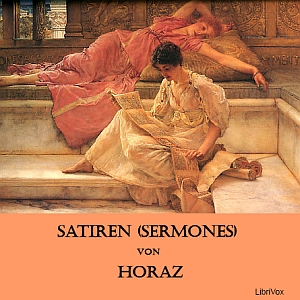
Veröffentlichung dieser Ausgabe 1893
Horaz, eigentlich Quintus Horatius Flaccus, ist neben Vergil einer der bedeutendsten römischen Dichter der „Augusteischen Zeit“, das heißt der Zeit zwischen 43 v. Chr. und 14 n. Chr., also vom Tod Ciceros bis zum Tod des Augustus.
Die zwei Bücher der Satiren bestehen aus zehn beziehungsweise acht teilweise recht umfangreichen Einzelgedichten in Hexametern. Horaz selbst nannte sie Sermones („Gespräche“). Er spricht darin mit Maecenas, mit dem Leser, mit sich selbst, und führt die Personen im Dialog vor. Ziel dieser nicht unbedingt harmlosen Plaudereien ist, dem Leser mit Humor die unangenehme Wahrheit aufzuzeigen. Vorbild war ihm der römische Satiriker Lucilius.
Horaz war stets um das Wesentliche und Straffheit bemüht. So lautete sein Kunstprinzip: Vielfalt in der Beschränktheit. Zentrales Thema ist die rechte Lebensgestaltung. Die meisten Gedichte geißeln Laster, die sozialen Unfrieden stiften oder zumindest die menschlichen Beziehungen beeinträchtigen, wie zum Beispiel: Habgier, Ehebruch, Aberglaube, Schlemmerei ... Im Gegensatz zu Lucilius, der schonungslos hochgestellte Zeitgenossen anprangerte, musste sich Horaz in dieser Beziehung zurückhalten. Seine Ausfälle beschränkten sich auf verstorbene Personen, einflusslose Leute und stadtbekannte Außenseiter. Nicht selten stellte er stellvertretend für den Normalbürger auch sich selbst und seine Schwächen dar.
(Zusammenfassung von Wikipedia)
18 episodes
Nachlaß des Diogenes von Sinope.
Aus einer alten Handschrift.
Von Christoph Martin Wieland (1733-1813), veröffentlicht 1770.
Wieland benutzt die Figur des berühmten Kynikers Diogenes von Sinope zu einer humorvollen Kritik der menschlichen Gesellschaft.
(Zusammenfassung von redaer)
25 episodes

The Gilded Age: A Tale of Today is an 1873 novel by Mark Twain and Charles Dudley Warner that satirizes greed and political corruption in post-Civil War America. The term gilded age, commonly given to the era, comes from the title of this book. Twain and Warner got the name from Shakespeare's King John (1595): "To gild refined gold, to paint the lily... is wasteful and ridiculous excess." Gilding a lily, which is already beautiful and not in need of further adornment, is excessive and wasteful, characteristics of the age Twain and Warner wrote about in their novel. Another interpretation of the title, of course, is the contrast between an ideal "Golden Age," and a less worthy "Gilded Age," as gilding is only a thin layer of gold over baser metal, so the title now takes on a pejorative meaning as to the novel's time, events and people.
Although not one of Twain's more well-known works, it has appeared in more than 100 editions since its original publication in 1873. Twain and Warner originally had planned to issue the novel with illustrations by Thomas Nast. The book is remarkable for two reasons–-it is the only novel Twain wrote with a collaborator, and its title very quickly became synonymous with graft, materialism, and corruption in public life. (Description by Wikipedia)
64 episodes

